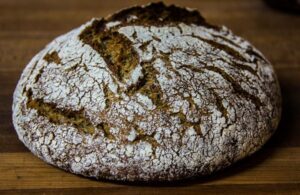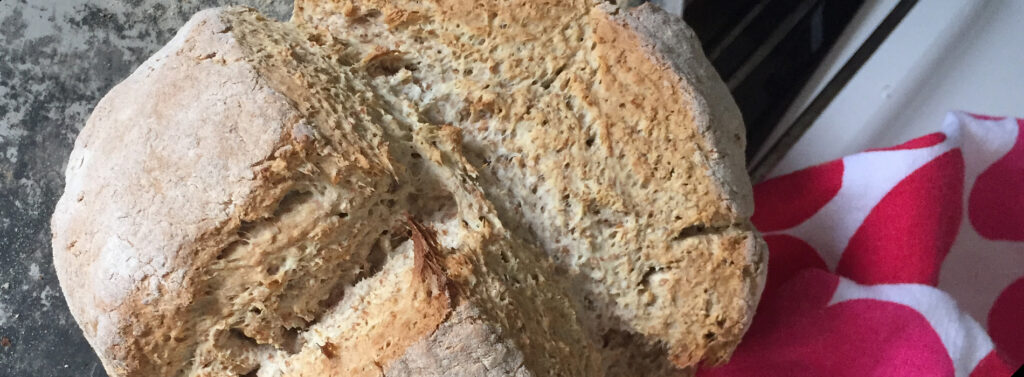Are wholegrains healthy?
Why are grains so important?
Are refined grains so bad for us?
Why a healthy balanced diet is the best solution?
Recommendations
While we are all living with the threats of coronavirus, it is easy to forget that other research, nothing to do with the pandemic, continues to be published. New information comes to light every day. Because of the current crisis it is now much more likely that researchers in all fields will publish their work to open access. Just such a paper was published on line recently [1]. This paper helps us to unravel some of the complexity regarding wholegrains versus refined grains. It argues for a more sophisticated approach than simply trying to answer the questions, grain or no grain? or wholemeal or refined?
Are wholegrains healthy?
I doubt if many people reading this blog will be under any illusion that whole grains are not good for us.
Over the last twenty odd years numerous studies have concluded that those people with a higher consumption of wholegrains have a host of health benefits over those who consume less. That includes a reduced risk of:
- Obesity and overweight
- Metabolic diseases
- Diabetes type 2
- Elevated inflammatory markers
- High blood pressure
- High blood lipids
- Coronary and cardiovascular disease
- Certain cancers, such as colon cancer
Many of you will immediately spot that these conditions are also associated with complications in COVID 19. The research is now pretty clear. Wholegrains are very good for us!
Why are grains so important?
All grain-based foods are an important source of energy, providing between 25% and 50% of calories in the western diet as well as providing a source of economical, portable and sustainable protein. Wholegrains are better than refined cereals because of the amount of fibre and nutrients present in the wholegrain. It is the presence of the fibre that many studies have focused upon.
In the UK and the US we are advised to eat a minimum 30g dietary fibre per day. Yet studies in the US have shown that only 4% of the population do that. In Nordic countries, we find people regularly eating much higher levels of fibre, particularly whole wheat, oats, barley and rye, and being healthier because of it. The reason people in Nordic countries eat more fibre might be the source of their bread. Wholegrain rye bread is high fibre, high nutrition and filling. After a couple of slices for breakfast or lunch you are not going to want to ‘fill up’ on low fibre/high fat breads such as croissants.
Studies show that fibre improves the range of gut microbes, makes you feel fuller and more satisfied after a meal, as well as improving glycaemic control (the balance of blood sugars). Long term, we believe that fibre improves the process of digestion, reduces constipation and ensures that nutrients are efficiently extracted from the food we eat.
Grains possess an impressive array of vitamins and minerals that contribute to health. Most of these are present in the bran that is discarded when grains are refined and are easily and cheaply provided when we eat wholemeal bread.

Rye flour generally contains a mixture of wholegrain and refined flour.
Are refined grains so bad for us?
Refined grains have far lower nutritional content and far less fibre. That is why in the UK all white (refined) flour for commercial purposes is ‘fortified’ with added calcium carbonate, iron, thiamine/vitamin B1 and niacin/vitamin B3. But only the calcium achieves the same level of nutrition as the wholegrain.
Contrary to popular belief, the starch in cereals is not bad for us, except in excess. That suggests another reason why wholegrains are better than refined. It is simply too easy to overdose on refined grain products. Whole grains require a bit more chewing and digesting. We feel fuller for longer – and that’s actually a good thing.
In the paper, “Make Half Your Grains Whole” [1], the lead author, Professor Julie Jones, examines the argument for a half-and-half wholegrain/refined grain diet. She is well known for her work on wholegrains, on myth-busting and for her work in women’s nutrition. But she works for many mainstream milling and cereal conglomerates, not least Quaker Oats, so we would expect her argument to be measured when it comes to refined grains.
Why a healthy balanced diet is the best solution?
In the paper Jones argues that a healthy balanced diet, mixing refined and wholegrain may be the best solution. She quotes some well-established studies, such as the US NHANES (2009-2014) studies that showed the best health outcome was achieved by people who balanced wholegrain and refined grains. In the Framlingham Heart study, the best outcome in relation to low visceral fat levels (a known predictor of heart disease and diabetes type 2) was 3 portions of wholegrains food and two of refined grains/day. (a serving equates to a small slice of bread 80-100 calories).
It may be the wholegrains that are doing you the most good, but Julie Jones argues that a couple of servings of refined grains each day, is a good source of energy, especially if the food you choose are lower in fats and sugars. This paper does not give a licence to eat jam doughnuts, but it shows that a chunk of fresh white baguette or white sourdough with your supper is unlikely to do harm.
Recommendations for grains in the diet

I advise anyone starting to watch their diet to try a portion-based approach. More detail can be found here:
Portion size: One portion equates to approximately 100 calories prepared eg. a slice of toast with a scraping of butter(6g fibre), 75g cooked brown rice flavoured with tamari (about 25g raw)(0.5g fibre), 100g cooked pasta (about 50g raw)(2g fibre). Fibre content of wholegrain products is variable. Check on the packaging.
Count only wholemeal bread and pasta, brown rice, and whole cereals (such as oats). If it is refined, however wonderful, count the calories and eat sparingly as ‘other’. I’d recommend cutting out refined products all together, for those on a diet.
[*] Most of us get our fibre from wholemeal cereals PLUS fresh fruit and vegetables, nuts, seeds etc. I recommend that anyone on a diet considers a fibre supplement each day of ground linseeds or similar.Other: Don’t be surprised if many cereals that you currently eat come into this category. All white, refined cereals, anything that is processed or ultra-processed and any sweet cakes or biscuits will go here. Take-away meals go in here. Convenience foods go here. Look on the packaging – they are almost always packaged – to find out how many calories are in them. An important part of re-balancing is getting back to simple foods and making your own, especially if you are trying to lose weight.
The critical factor is the quality of balance in the diet. Wholemeal bread is an excellent source of nutrition, but as long as you are eating other good protein sources (for iron), dairy (for calcium) and fruit and vegetables (for the full spectrum of vitamins) then it is perfectly permissible to get a couple of hundred calories of your daily nutrition from refined grains (which also contain nutrients).
The question we must ask ourselves is about fibre. With the recommendation for 30g fibre per person per day, that is not easily achieved with even 5 portions of wholegrain cereal each day. The diet must be augmented with other high fibre plant foods such as nuts, fruit and vegetables as well as cereals.
The really important issue may not be whether all your cereals are wholegrain. Many ‘wholemeal’ breads are quite legally made with only 50% wholemeal flour anyway. The real question is whether you are getting your grains from a tasty tuna sandwich, or a chunk of high fat/high sugar shop-bought cake.
[1] Jones JM et al, (2020) Perspective: Whole and Refined Grains and Health—Evidence Supporting “Make Half Your Grains Whole”
